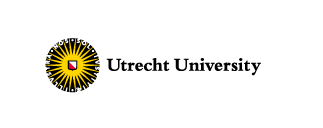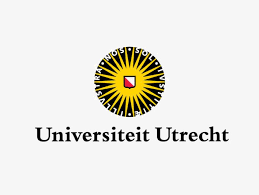Chemistry Teaching
Chemistry
Teaching program for chemistry students of the Department of Biomolecular Mass Spectrometry
Our participation in the Bachelor Chemistry curriculum:
- Sectieproject (1st year)
- Structural Analysis (2nd year)
- 2nd year research project (2nd year)
- Structural Biology (3rd year)
- Bachelor thesis
- Chemistry Masters
“Sectieproject”
Coordinator: dr. Shabaz Mohammed
“Beating the Bugs”
In this research project the students investigate the influence of Vancomycin type antibiotics to a bacterium mimetic using mass spectrometry as the principle tool. The results of this research project will be presented on a poster.
“2nd year Research Project” (2nd year, 7,5 ECTS)
Coordinator: dr. Shabaz Mohammed and dr. Esther van Duijn
In this research project the students elucidate the mechanism of action of an enzyme using a combination of mass spectrometry and X-ray crystallography. The protein studied, flavin reductase, is a member of a newly discovered family of enzymes from which only limited amount of information is available. To date, its mechanism of action in the host organism is unknown. The project is performed in collaboration with the department of Crystal and Structural Chemistry. The results of project are presented in the form of a scientific publication and a seminar.

Crystallographic model of dimeric flavin reductase
Biophysics (2nd year, 7,5 ECTS)
Coordinator: dr. Shabaz Mohammed
TBA
Content of the Bachelor thesis (3rd year, 15 ECTS)
Coordinator: dr. Shabaz Mohammed
Lecturers: prof.dr. Albert J.R. Heck, dr. Bas van Breukelen, dr. Arjen Scholten, dr. Esther van Duijn, dr. Shabaz Mohammed, dr. Monique Slijper
The student participates in one of the current research projects within the department. Under supervision of a post-doctoral fellow or PhD student 18 credits are spent on the research project. The student learns how to perform a research project (practical work, literature research, writing a report, participation in work discussions and presentation of results).
Recommended prior knowledge: Structural Analysis, Structural Biology, Research Project 2nd year
Our participation in the Chemistry Master Programs:
Molecular and Cellular Life Sciences;
Cancer Genomics & Developmental Biology;
Drug Innovation.
Advanced mass spectrometry in proteomics and structural biology (1,5 ECTS)
Coordinator: dr. Shabaz Mohammed
Lecturers: prof.dr. Albert J.R. Heck, dr. Shabaz Mohammed
In this course the emphasis is on extending the understanding of the scope and limitations of modern mass spectrometric techniques in Proteomics and Structural Biology. Small groups of students get four publications. This may be a review article on a specific topic, a publication on novel applications of mass spectrometry or on a new method. The group discusses each publication with one of the lecturers. Each session will take 1.5 hours.|
Major/Minor Master Research Projects (30-45 ECTS)
The research in the Biomolecular Mass Spectrometry & Proteomics Group is centered around three themes that are heavily intertwined. The first theme is geared towards the development and implementation of novel mass spectrometric methods for the more efficient and detailed characterization of biomolecules. The second theme evolves around the application of state-of-the-art proteomic techniques to a large variety of biological questions and challenges. The emphasis is especially on proteins and their post-translational modifications. The third pillar of the group is centered around the investigation of complete protein-complexes and protein-interactions important in e.g. protein-folding, protein-ligand binding, and the formation of tertiary and quaternary structures. The Department of Biomolecular Mass Spectrometry is affiliated to both the Faculty of Chemistry and the Faculty of Pharmacy.
A whole array of novel state-of-the art mass spectrometric methods is available within the department. The research in the department is multidisciplinary and many of the research projects are in collaboration with other academic research groups within the university, but also the NKI and the Hubrecht laboratory. Projects with a more clinical focus are also pursued in collaboration with groups in several academic hospitals. Also many projects are tied to partners in industry.
Many of our research efforts rely on the participation of young scientist that we train in our group through participating in several Research Schools within the UU. In addition we also receive several Erasmus, or other exchange students every year. We provide both theoretical Master courses, as well as tailored research projects for Master students.
Interested in a Minor or Major research in proteomics for your Master program?
Coordinator: Prof. dr. Albert J. R. Heck
Lecturers: Prof. dr. Albert Heck, dr. Bas van Breukelen, dr. Esther van Duijn, dr. Shabaz Mohammed, dr. Arjen Scholten, dr. Monique Slijper
Perform your minor or master research projects on one of our exciting topics that all evolve around the development and application of the most modern proteomics techniques. As one of the largest and most well-equipped proteomics research groups in Europe, we offer cutting-edge research projects to Master students. Under supervision of a post-doctoral fellow or PhD-student the MSc-student participates in ongoing current research within the department. As our department is very multidisciplinary, we can offer exciting projects ranging from the technical development of novel mass spectrometric techniques, to the elucidation of the constitution of a very large protein complex, or the discovery of novel players in the development of cancer or heart disease. We also have room for people interested in bioinformatics. Our biological scope is very broad and ranges from small animals to humans, but also microorganisms, fungi and plants. The variety of biological questions that can be answered in a very novel way by proteomics is a large motivation for many of our MSc- and PhD students to choose for this department to start their career in academic research, drug discovery or biotechnology. Are you interested? Please contact one of us to talk about the exciting science we do!
In practice
The credits are mainly spent on the research project (practical work, literature research, writing a report, participation in work discussions and presentation of results). To broaden the theoretical knowledge about mass spectrometry the student follows the course Biomolecular Mass Spectrometry (3 credits). This course will be given by lecturers from the Biomolecular Mass Spectrometry group as well as by lecturers from other universities and industry.
The results of the research project will be presented in the form of an oral presentation and a scientific report.
Recommended prior knowledge of Cell Biology, Biochemistry, Structural Biology and/or on Analytical Chemistry is depending on the research project.
![]()

